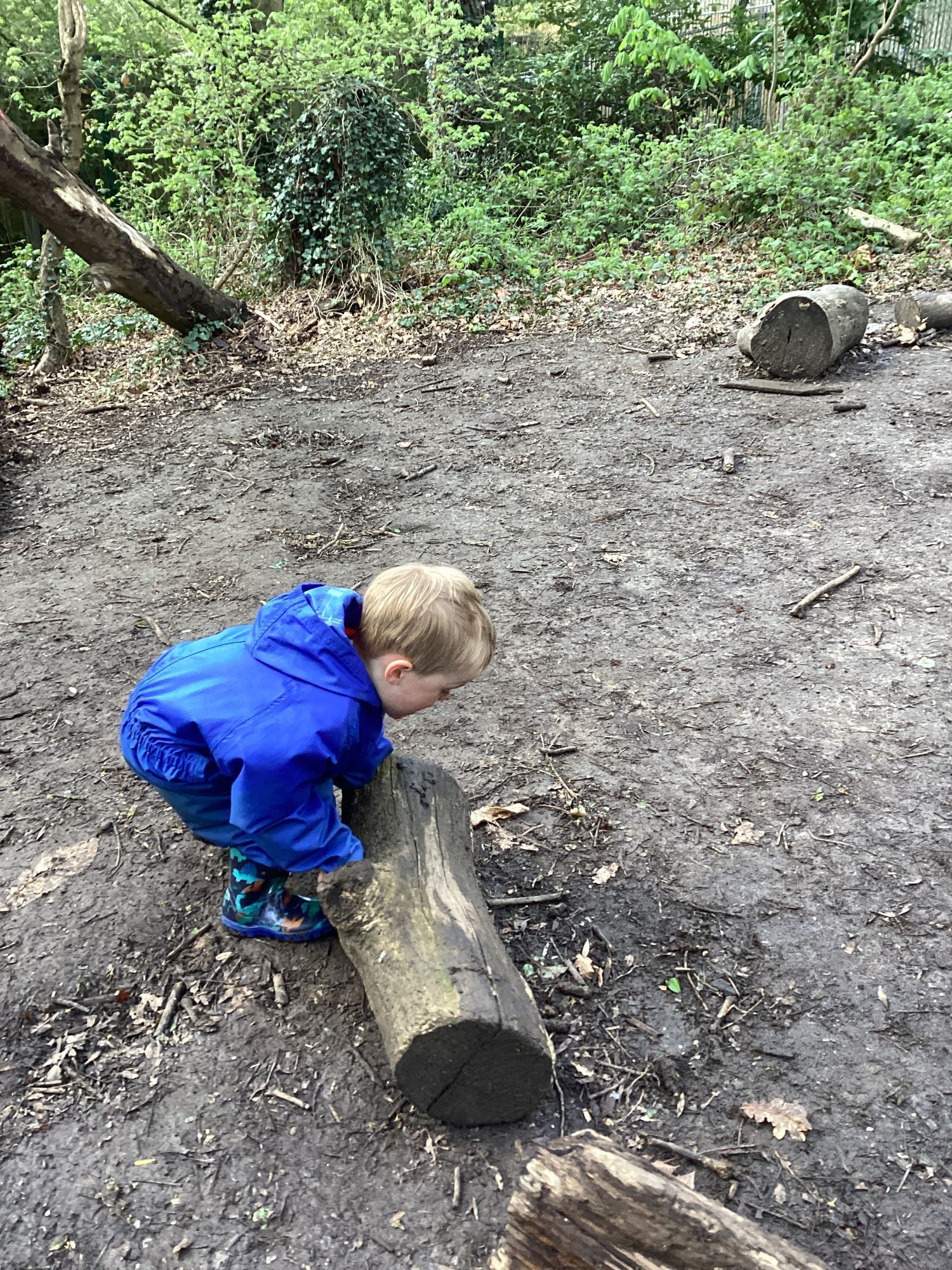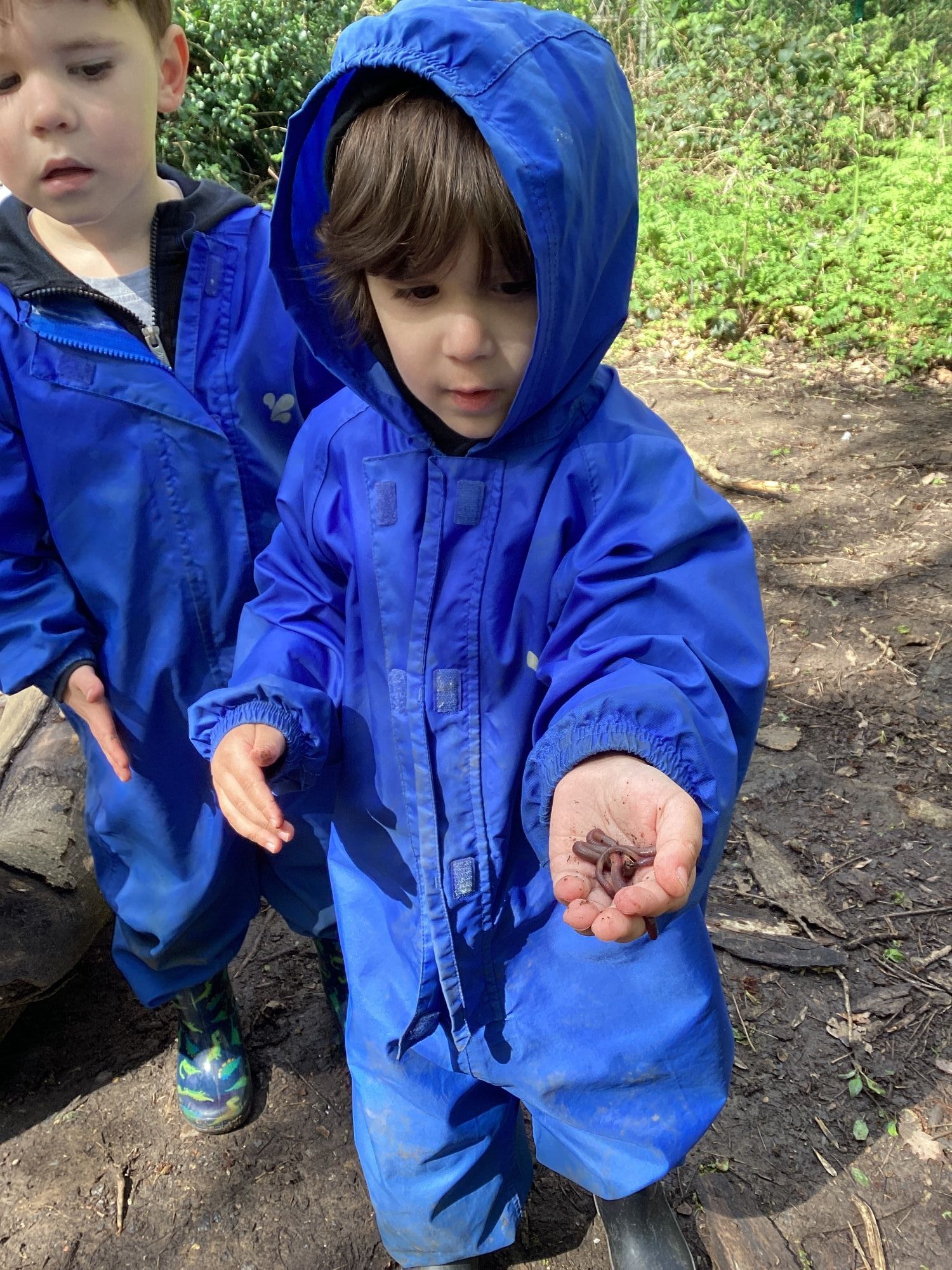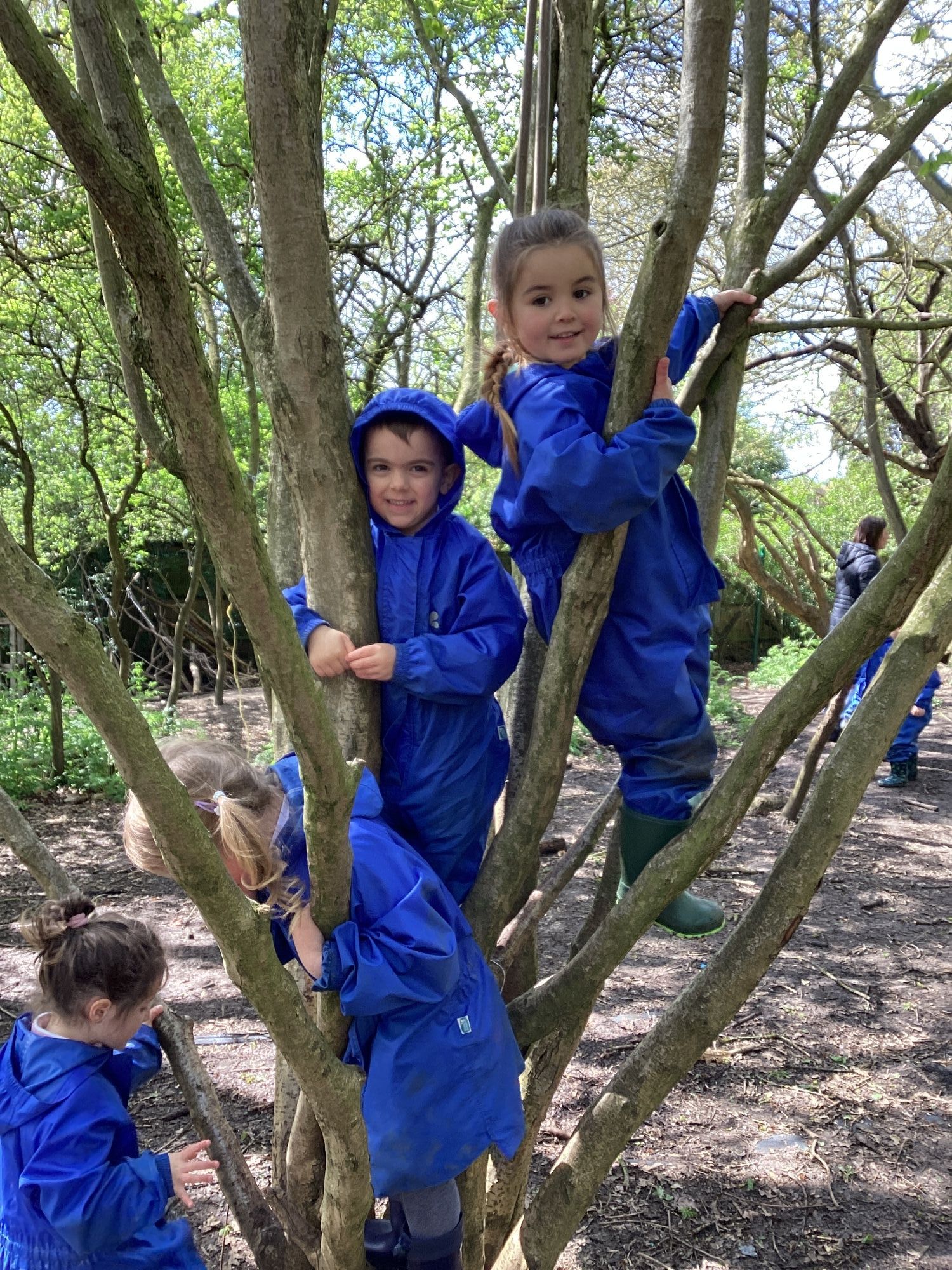Learning outside the classroom
Forest School
What is Forest School?
The Forest School approach to learning
Forest School has a very unique approach to learning. There is a big emphasis on a ‘have a go’ approach with the focus not being on the end product but on the process and experiences. Forest School learning is about children learning many skills such as turn taking, sharing, talking and managing risks.
Forest School is based around some set routines and repetition, such as the getting ready process, risk assessing, base camp time and Forest School Rules. This gives structure still to an otherwise very open and free learning environment.
Forest School learning is based on the theory that nature and movement are essential to encourage effective learning, where children are set small achievable tasks to raise confidence and self-esteem. Adults act as facilitators that scaffold children’s learning opportunities. Forest School learning gives children choice so they take a lead on their own learning.
Why is self-directed learning important?
Every child is an individual and children learn in different ways. In Forest School the emphasis is on observing children’s skills, learning styles and schemas and then scaffolding their learning opportunities to suit their preferences maximising their learning potential and making the learning experience fun, rewarding and enjoyable.
Self-directed learning also internalises the children’s sense and understanding of the importance of boundaries and how to assess and manage risks.
What are the key elements of play? How can they be promoted at Forest School?
Play is best when adults are watchful but not intrusive and when the environment is safe to encourage discovery and adventure. When children are confident to explore the unknown, share spaces and have autonomy in creating their play ‘setting’. Play is free from adult agendas and does not require an end product. Play should be flexible to suit all preferences of engagement, whether that be in solitary and private or as a group. Play is about curiosity, choice, imagination, exploring and testing, role play, practising rules, being expressive and communication. The Forest School environment and child-led approach to learning supports all play principles and nurtures learning in a very accessible way through a play based ethos.
How Forest School supports holistic learning?
Forest school is a very non-restrictive style of schooling that covers all areas of learning and statutory curriculum too. It empowers children, promotes language and communication skills and involves ‘hands on’ learning in a very inclusive environment. Forest School covers all areas of development including social and emotional, physical, cognitive, spiritual, gross and fine motor, sensory, self help and communication and language. It is an extremely empowering model of facilitating learning.
Forest School at Midfield takes place in a designated area of the school grounds. Forest School sessions are run by qualified Forest School Leaders.
Forest School will commence in the Spring term.
If there are any changes due to weather or other circumstances, we will be sure to let you know in advance via Dojo.






